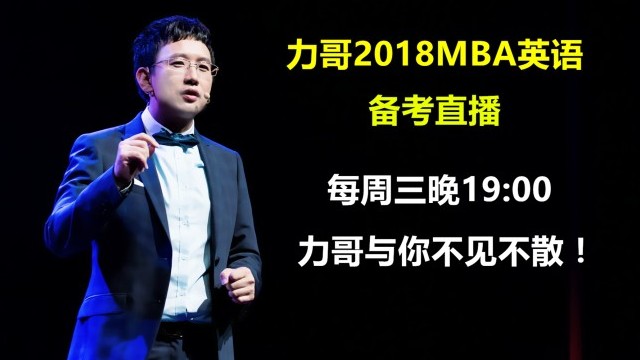2005年全国大学生英语竞赛决赛试题及答案(B级)
Part I Listening Comprehension (25 minutes, 30 points)
Section A Dialogues (10 points)
Directions: In this section, you will hear 10 short dialogues. At the end of each dialogue, a question will be asked about what was said. Both the dialogue and the question will be read only once. After each question, there will be a pause. During the pause, you must read the four choices marked A, B, C and D, and decide which is the best answer. Then mark the corresponding letter on the Answer Sheet with a single line through the centre.
1. W: The library is closed for repairs from the 1st of July until Monday the 6th of August.
M: Oh, my! My library books are due on August 1st.
Q: When will the library re-open? (B)
2. M: Excuse me, could you explain how to get to the express bus terminal, please? I have to pick up my grandparents there.
W: Sure, you need to take a right turn at the third traffic light at the Peach Corner Street, and then go straight half a mile. It's right next to the subway station. You won't miss it.
M: Oh, thank you. It's easier than I thought it would be.
Q: Where will the man meet his grandparents? (D)
3. M: I need to buy something for my wife. Tomorrow she turns 32.
W: Have you decided what you're going to give her?
M: I think I'll bring 32 red roses, one for each year.
Q: What will the man celebrate? (D)
4. W: I suppose we could walk or cycle to the pool—it's not that far.
M: Yes, but it's so hot we'll be exhausted by the time we get there. How about getting a number 38 bus? It stops right outside.
W: Good idea!
Q: How will they get to the swimming pool? (A)
5. M: I really hate my work!
W: Why not look for a different job?
M: It's not that easy for me.
Q: What does the woman suggest? (B)
6. M: Hello! This is John Smith calling to confirm my reservation of the table at 5 p.m.
W: Mmm, let me see. I'm sorry. I can't find any reservation under that name.
M: No, it can't be true! I made that reservation only an hour ago. Would you please double-check the list, please?
Q: Why did the man call the woman? (D)
7. M: My wife had a car accident on her way out of the city with her mother two days ago. She wasn't able to come here to have her car repaired because she didn't dare to drive a car. This was the first accident since she has been driving. Can you examine the car for me, please? And when can I come for it?
W: Well, the technician will take a look at the car, and then he'll tell you the details.
M: Ok, thank you.
Q: Who came to have the car repaired the car? (A)
8. M: Excuse me, do you know the phone number of the lawyer named Foley in our town?
W: I'm not sure. I just moved here several weeks ago. You should look it up in the telephone book.
M: What a fool I am! That'll probably be better than asking everyone.
Q: How will the man find the phone number? (B)
9. M: Are there any seats available for tonight's show?
W: Yes, we still have a few left.
M: How much are the tickets?
W: They are eight dollars each for adults, but student tickets are half price.
M: Two adults and one student, please.
Q: How much will the man pay for the tickets?(B)
10. M: What one thing do you hate most of all? I think maybe you'll answer, “Monday mornings,” right?
W: No way! The thing I hate the most is going to visit dentist!
M: Really? I don't mind dentists at all. In fact, I like to visit dentist. And when I do go there, I always feel that my dental condition will improve.
W: Wow! You're kidding! I have a lot of problems with my teeth, but I can't stand dentists!
Q: Which of the following statements is true about the man and the woman? (D)
Section B News Items (10 points)
Directions: In this section, you will hear 10 short pieces of news from BBC or VOA. After each news item and question, there will be a pause. During the pause, you must read the three choices marked A, B and C, and decide which is the best answer. Then mark the corresponding letter on the Answer Sheet with a single line through the centre.
11. In the battle of the Hollywood veterans, the undoubted winner was Clint Eastwood. His “Million Dollar Baby” was voted best film by the Academy while he also won the coveted Oscar for Best Director for the second time. The film won four Oscars in total with Hilary Swank picking up Best Actress for her portrayal of a female boxer and Morgan Freeman named Best Supporting Actor.
Question: What award did Clint Eastwood receive? (C)
12. The London conference has generated new international support for President Abbas to clean up the corruption and ineffective rule that plagued the Palestinian authorities under Yasser Arafat.
Senior officials from 23 countries and 6 international organizations have thrown their weight behind a Palestinian work plan to overhaul the Palestinians' government, economy and security forces.
Question: What do the officials from 23 countries and 6 international organizations do? (B)
13. The European Commission will spend about ninety five million dollars over the next four years trying to prevent children and young adults from smoking. That's a big increase on the twenty five million dollars it spend on its last anti-smoking campaign.
Question: What is the increase between the two anti-smoking campaigns? (B)
14. Hunter S. Thompson is credited with developing a new form of fictional journalism, sometimes called Gonzo journalism, in which the writer made himself an essential element of the story. Fear and Loathing in Las Vegas became a psychedelic classic telling the story of Thompson's drug hazed road trip across the western US in search of the American Dream. The story was eventually made into a movie starring Johnny Depp and Benicio Del Toro.
Question: Is Fear and Loathing in Las Vegas a psychedelic classic or a piece of science fiction? (A)
15. Afghanistan has appointed its first female provincial governor in keeping with the new government's policy of promoting women to positions of power.
Interior Minister Ali Jalali announced the appointment Thursday of Habiba Sarobi as Afghanistan's first ever female governor.
Her appointment is part of a national initiative to place more women in positions of power. Afghan President Hamid Karzai and others in his administration have urged a wider political role for women.
Question: Who was appointed as the first female governor in Afghanistan? (B)
16. It only took 10 minutes to auction off the main oil-pumping division of Russia's largest oil company, Yukos.
There were only two bidders, including the large state natural gas company Gazprom, which was widely expected to be the winner.
But in a surprise, a virtually unknown company called the Baikal Finance Group won, paying just over $9 billion.
Question: Which company won the auction at last? (A)
17. From baseball superstar to aging rock star, 2003 was the year Elvis Costello had his share of the jazz spotlight, in more ways than one. With the release of his number one jazz album North, Costello proved why he's considered one of today's best ballad singers and songwriters. He describes North as an album about “melody, harmony, mood and emotion, mostly emotion”. An emotional Elvis also made news when he married jazz singer Diana Krall in December, a match some say was made in musical heaven.
Question: What is Elvis Costello? (A)
18. The world's first treaty aimed at cutting tobacco-related deaths has come into force. The World Health Organization's Framework Convention on Tobacco Control becomes legally binding upon countries that have ratified the landmark agreement.
The WHO estimates that nearly five million people die prematurely every year from tobacco-related diseases. If current smoking trends are not reversed, the WHO warns by 2020, tobacco will kill 10 million people a year, 70 per cent of them in developing countries.
Question: By 2020, how many people will probably die from tobacco-related diseases each year in developing countries? (B)
19. In Iraq, the FBI is involved in trying to secure the release of civilians from 12 countries who have been taken hostage by Iraqi insurgents. Four Italian security guards are the latest foreigners to be reported abducted, while nine Americans still remain unaccounted for.
Question: What is the nationality of the four security guards? (C)
20. When Margaret Thatcher came to power in May 1979, Britain was a very different place to today. The trade unions were a political force to be reckoned with, government was involved in everything from generating power to making cars, and many people looked to the state to provide their every need. Much of that changed during her eleven years in power. She neutered the labour movement, oversaw the privatization of large swathes of the economy, and encouraged people to take more responsibility for their own lives. Much of this was fiercely resisted but is now political orthodoxy in Britain.
Question: When did Margaret Thatcher resign from office? (B)
Section C Passages (10 points)
Directions: In this section, you will hear 2 passages. At the end of each passage, you will hear 5 questions. After you hear a question, you must choose the best answer from the four choices marked A, B, C and D. Then mark the corresponding letter on the Answer Sheet with a single line through the centre.
Passage One
What's it like to be a gold medal winner at the Olympic Games? This is what Sarah Hughes writes about how her life has changed since winning an Olympic gold medal in 2002.
“In the months since the Olympics, I've received the key to New York City, met President Bush and had my photograph put on a cereal box. I've met so many amazing people, including Britney Spears, Leonardo Dicaprio and practically every boy-band member you can think of. But through it all I've tried hard to stay same person: a normal 17-year-old girl from Great Neck, New York, who loves e-mail, baking, and anything with sparkles.”
“It's funny, but when I stepped on the ice at the 2002 Winter Games in Salt Lake City, I did not think about winning. I felt proud just to have made it that far. Figure skating competition consists of a two-and-a-half-minute short program and a four-minute long program. Going into the long program, I was in fourth place. However, I was also ahead of most of the world's best skaters. Yet I knew I could do better.”
“You need a lot of luck to go from fourth place to first. I guess February 21, 2002, was my lucky night. I seemed to gain energy as my program went on, getting every spin, landing every jump. I landed back-to-back triple jumps, the first woman ever to do that in competition. Backstage, when coach, Robin Wagner, found out that I'd won, she screamed and fell out of her chair. I sat there in disbelief, thinking, ‘Wow’!”
“After winning, I got so little sleep that I got sick and had to miss the closing ceremonies. I was heartbroken. But it wasn't until I left Salt Lake City a few days later that I realized how much my life had changed. For instance, I got to fly to Los Angeles to present a prize at the Grammy Awards with the Backstreet Boys.”
“One of the biggest things that has happened since winning is that now I can support programs and causes I am very interested in, especially breast cancer. My mom, Amy, had breast cancer when I was 12. She was courageous and strong. She always had a positive outlook. Today she's been cancer-free for four years.”
“I learned from my mom that you can't be afraid to live. I love taking risks. Champions on Ice, the touring figure skating show that I was in during the summer, is much more relaxed than the Olympics. However, once in a while I did a triple-triple combination, just to test myself. Sometimes I fell, but landing well after every jump is not the point. It is the attempt. It is the effort. I will continue to compete and try for the Olympics. I might lose or I might win. But whatever happens, I will never lose my passion.”
Questions 21 to 25 are based on the passage you have just heard.
21. When did Sarah Hughes get the Olympic gold medal? (C)
22. What has remained the same in Sarah Hughes' life since the Olympic Games? (A)
23. Why did Sarah Hughes think she was lucky at the Olympic Games? (D)
24. Why did Sarah Hughes miss the closing ceremonies at the Olympic Games? (A)
25. What did she learn from her mother? (D)
Passage Two
Hand-held fans began in China some 5,000 years ago. Of course, there is a story about the invention of the hand-held fan. The story says that one day, while the daughter of a famous official was at a festival, she felt suddenly sick from the heat. She took off the mask she was wearing at the time and did the obvious: She held it close to her face and moved it back and forth to create a slight breeze. The other women saw her example and immediately began to do the same. Is this truth or fiction? Believe what you want.
The original fans were made of leaves, tied grasses, or feathers fixed to a wood or bone handle. They were used to cool the face, start fires, and for many other purposes. Eventually the technique of stretching silk and later paper across a hard frame to create a flat, round fan was developed. Screen fans soon replaced feather fans.
Chinese fans were first introduced to Japan during the Nara period (AD 710—794). Less than a century later, the Japanese had improved on the Chinese original design by inventing the folding fan. This was a folded, decorated piece of paper. The paper was then stuck on a semicircular frame of thin flat sticks. The idea of how to make this new kind of fan went back to China, and it soon became very popular. In the 14th century, the fan traveled from China to Europe. Thanks to the Portuguese traders who brought fans from China to Europe in the 15th century, fans were used in many countries. People in Europe could not buy enough fans. To make fans more quickly, the parts were often imported from China and then put together in Europe.
By the 17th and 18th centuries, France became the leading center for making fans. Fans had become an important accessory for anyone who wanted to be fashionable. They had also become more complicated and expensive. Many different kinds of materials were used, including materials such as silk and lace. Designs on the fans were printed or hand-colored. Fashionable fan handles were most often covered with precious stones or pearls. The folding-fan skeletons were made from ivory, mother-of-pearl, or expensive wood, and held together with silk ribbons or sewing thread.
Questions 26 to 30 are based on the passage you have just heard.
26. Where were hand-held fans first used according to the passage? (C)
27. What were hand-held fans originally made of? (B)
28. How were folding fans first developed? (A)
29. When did fans travel from China to Europe? (A)
30. Why was France important in the history of fans? (B)
Part II Vocabulary and Structure (5 minutes, 10 points)
31. C 32. D 33. A 34. B 35. C 36. C 37. A 38. C 39. B 40. B
Part III Situational Dialogues (5 minutes, 10 points)
41. A 42. D 43. A 44. C 45. B 46. C 47. A 48. B 49. D 50. C
Part IV IQ Test (5 minutes, 5 points)
51. D 52. C 53. D 54. C 55. C
Part V Reading Comprehension (25 minutes, 35 points)
Section A Multiple Choice (5 points)
56. C 57. B 58. A 59. B 60. A
Section B Short Answer Questions (20 points)
61. decreasing
62. irrigation, increased population
63. fish and plant life
64. In the 1980s.
65. twenty-five
66. they are living in a foreign country
67. improve with age
68. better at judging people's honesty and intelligence
69. as well
70. unimportant to them
Section C True (T) or False (F) (10 points)
71. F 72. T 73. F 74. T 75. F 76. T 77. T 78. T 79. F 80. F
Part VI Cloze (10 minutes, 10 points)
81. from 82. cover 83. first 84. suddenly 85. famous 86. Despite 87. next 88. happened 89. built 90. story
Part VII Translation (15 minutes, 20 points)
Section A English-Chinese Translation (10 points)
91. 例如,在接受别人第二天早晨让他搭便车上班的邀请之后,他或她将不能在双方约定好的时间到达乘车地点。
92. 那么,便车提供者可能会放弃看起来没有尽头的等待,一走了之。在这种情况下,迟到者要比平时晚些努力完成当天的日程安排。
93. 在这种类型的故事里,便车提供者虽然受挫却忠实地在路边等待,直到那个没长大脑的“乘客”到达为止。
94. 现在,我们把时间看成是个十分灵活的东西;我们常含糊其词地说大约在某个时间见面,至于那个特定的时间能有多大的伸缩,却无人能说清楚。
95. 即使是最亲密的朋友最终也会放弃等待对方,所以当他们安排约会时,他们也不妨说“过时不候”。
Section B Chinese-English Translation (10 points)
96. Creative thinking requires an attitude that allows you to search for ideas and manipulate your knowledge and experience.
97. Genes, the basic parts of cells which are passed down from parents to children, may have something to do with human behavior.
98. Misunderstanding often happens when two people try to communicate but fail to say exactly what they mean or incorrectly assume that they understand what the other has said.
99. Today, left-handedness is becoming more and more acceptable in society, and is even considered advantageous in some sports.
100. Our lives are so dependent on various kinds of transportation that we cannot imagine life without them.
Part VIII Writing (30 minutes, 30 points)
Task I 应用文的评分标准
一、 评分原则:
1. 本题满分为10分。
2. 评分时,先根据文章的内容和语言初步确定其所属档次,然后以该档次的要求来衡量、确定或调整本档次,最后给分。
3. 词数少于100或多于150的,从总分中减去2分。
4. 如书写较差,以致影响交流,将分数降低一个档次。
二、各档次的给分要求:
第四档:9分
完全符合写作格式的要求,覆盖所有内容要点,表达思想清楚,文字通顺,连贯性很好,基本上无词汇和语法错误。
第三档:7分
基本符合写作格式的要求,有个别地方表达思想不够清楚,文字基本通顺、连贯,有少量词汇和语法错误。
第二档:5分
未恰当完成写作格式的要求,漏掉内容要点,表达思想不清楚,文字多处出现词汇和语法错误,影响了对写作内容的理解。
第一档:2分
未完成写作格式的要求,明显遗漏主要内容,表达思想紊乱,有较多词汇和语法的重大错误,未能将信息传达给读者。
0分
白卷;作文与题目毫不相关;内容太少,无法评判;所写内容无法看清。
三、 说明:
1. 内容要点可用不同方式表达。
2. 对紧扣主题的适当发挥不予扣分。
3. 漏掉每个要点扣1—2分。
Task II 议论文的评分标准
一、 评分原则:
1. 本题满分为20分。
2. 评分时,先根据文章的内容和语言初步确定其所属档次,然后以该档次的要求来衡量、确定或调整本档次,最后给分。
3. 词数少于130或多于170的,从总分中减去2分。
4. 如书写较差,以致影响交流,将分数降低一个档次。
二、各档次的给分范围和要求:
第四档:16—20分
完全符合写作格式的要求,覆盖所有内容要点,表达思想清楚,文字通顺,连贯性很好,基本上无词汇和语法错误。
第三档:11—15分
基本符合写作格式的要求,有个别地方表达思想不够清楚,文字基本通顺、连贯,有少量词汇和语法错误。
第二档:6—10分
未恰当完成写作格式的要求,漏掉内容要点,表达思想不清楚,文字多处出现词汇和语法错误,影响了对写作内容的理解。
第一档:1—5分
未完成写作格式的要求,明显遗漏主要内容,表达思想紊乱,有较多词汇和语法的重大错误,未能将信息传达给读者。
0分
白卷;作文与题目毫不相关;内容太少,无法评判;所写内容无法看清。
三、 说明:
1. 内容要点可用不同方式表达。
2. 对紧扣主题的适当发挥不予扣分。
3. 漏掉每个要点扣1—2分。
- 相关热点:
- 红烧英文怎么说











